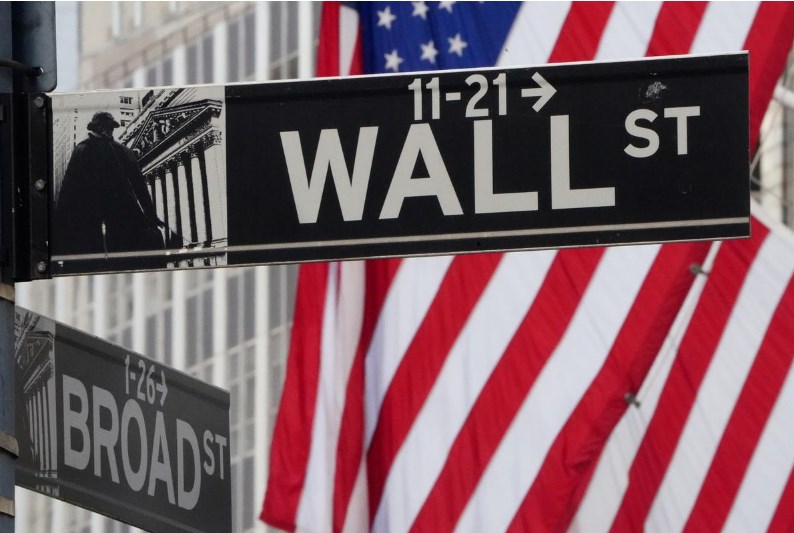
© Reuters
DBKGn
-8.53%
Add to/Remove from Watchlist
Add to Watchlist
Add Position
Position added successfully to:
Please name your holdings portfolio
Type:
BUY
SELL
Date:
Amount:
Price
Point Value:
Leverage:
1:1
1:10
1:25
1:50
1:100
1:200
1:400
1:500
1:1000
Commission:
Create New Watchlist
Create
Create a new holdings portfolio
Add
Create
+ Add another position
Close
By Noreen Burke
Investing.com — Investors will be hoping for some stability to return to markets roiled by bank failures in the coming week as they weight the ongoing fallout from the forced UBS-Credit Suisse tie-up. Upcoming U.S. data could show how much the market turmoil is making recession more likely. Eurozone inflation data and PMI data out of China will also be in focus.
Banking sector turmoil
Investors are braced for more turmoil in the banking sector after the collapse of two U.S. lenders earlier this month and last weekend’s forced takeover of troubled Credit Suisse by rival UBS and the writedown of some of its contingent convertible bonds.
Many worry that other nasty surprises are lurking as the series of aggressive rate hikes by the Federal Reserve over the past year ripple through the economy.
“The market is very nervous at this point and investors are acting first and looking into the nuances later,” Wei Li, global chief investment strategist at fund giant BlackRock told Reuters. “It’s understandable because it’s not super clear that this is definitely contained.”
In recent days, investors have focused on German giant Deutsche Bank (ETR:DBKGn). The company’s shares have lost more than a quarter of their value this month, including Friday’s 8.5% fall, and the cost of protecting against a default on its bonds soared, even though few put it in a class with Credit Suisse.
Tumultuous first quarter
As a tumultuous first quarter draws to a close investors are looking ahead to what Q2 might bring.
January saw the biggest rush into equities for the first month of the year on record as investors loaded up on stocks. The threat of inflation looked less severe, and the economy appeared robust.
But fast forward to the end of Q1 and a slew of crypto companies have collapsed, U.S. regional banks stocks have tanked in the wake of Silicon Valley Bank collapse and Credit Suisse has imploded – whipping market volatility into a 2008-style frenzy.
Fed Chair Jerome Powell said banking stress could trigger a credit crunch with “significant” implications for a slowing U.S. economy.
While Fed officials continue to see additional rate hikes as a strong possibility, financial markets are now favoring the likelihood of a no hike at all at the conclusion of the central bank’s next policy meeting in May.
U.S. data
It’s set to be a much quieter week on the economic calendar – the highlight will be Friday’s core PCE price index – the Fed’s favored measure of inflation. It accelerated in January, adding to concerns over the prospect of a more hawkish Fed.
Consumer confidence data for March is due out on Tuesday and is likely to show the impact of stresses in the financial system.
Other reports include data on pending home sales, revised GDP and initial jobless claims.
Several Fed officials are also due to speak during the week, including Fed Governor Philip Jefferson, Boston Fed President Susan Collins, Richmond Fed President Tom Barkin, and governors Christopher Waller and Lisa Cook.
Eurozone inflation
The Eurozone is to release what will be closely watched inflation data on Friday and while headline inflation is expected to slow, the underlying rate of inflation, which strips out volatile elements including food and fuel prices, is expected to accelerate.
The European Central Bank raised interest rates by 50 basis points earlier this month to 3% but some policymakers are now calling for more cautious steps as past rate hikes are now taking hold and the economy is starting to respond.
Meanwhile, the banking crisis has prompted fears that lending will slow, acting as a drag on the economy.
Bundesbank chief Joachim Nagel is due to speak on Monday and ECB President Christine Lagarde is to make a speech in Frankfurt on Tuesday – investors will be on the lookout for any indications on how policymakers are viewing the inflation threat amid ongoing turmoil in the banking sector.
China PMIs, Tokyo inflation
Chinese PMI data on Friday will be closely watched as market watchers try to gauge the strength of the recovery in the world’s second largest economy in the wake of the lifting of pandemic restrictions.
In Japan, Tokyo inflation data on Friday will be in the spotlight – the report is expected to show that inflation topped the Bank of Japan’s 2% target for the tenth straight month.
Expectations are high that incoming BOJ Governor Kazuo Ueda will oversee the unwinding of yield curve controls and negative interest rates during his tenure after a decade of unprecedented stimulus by his predecessor.
–Reuters contributed to this report
Source: Investing.com





























